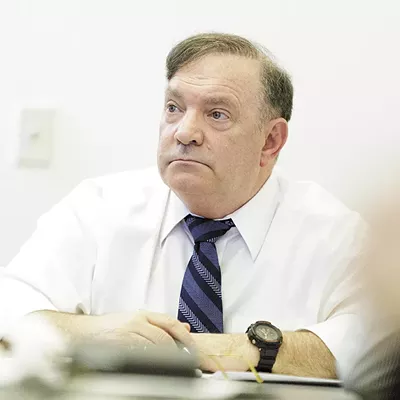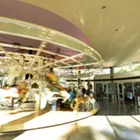Old Guard" is often used as a term of derision. It suggests conservatives interested in protecting their privileges. This is such a distortion of the original meaning that one suspects some jealousy is at work. It is true not everyone is admitted to an Old Guard, but it was not a matter of privilege.
The term comes from Napoleon, who used it to designate a corps made up entirely of soldiers who had fought with him in the earliest and toughest battles. He put them all in one corps because he knew that, no matter what happened, he could rely on them.
Spokane has an old guard generally made up of those who forged relationships prior to and during Expo '74. They represent a generation brought up in an entirely different tradition than those who came of age during Vietnam and later.
The old guard grew up in a world of high school chums who stayed in town, fraternity politics, civic clubs and World War II -- all of which tended to teach the value of cooperation. They instinctively applied this ideal to business alliances, charities, school raffles, civic projects and even to personal and financial crises.
Hundreds of Spokane's old guard gathered last week for the funeral of one of its great figures, Neal Fosseen, who was mayor of Spokane from 1960-67. But it wasn't being mayor that brought so many out to honor him; it was being old guard, through and through.
I got to know Fosseen when, four years ago, I had a standing appointment through one summer to interview him every Tuesday about his nine decades of involvement in Spokane.
These interviews took place in his office in the Old National Bank Building, overlooking Riverfront Park. At age 91, he still went to his office every day, meticulously attired in suit and colorful tie. He was handsome as ever, with his heavy gray eyebrows, sparkling blue eyes and the familiar toothy smile.
While we were talking, he would get calls and place calls and have visitors tapping on his door. He was still at the kind of work that covered the walls of his office with civic awards: Boy Scouts, Fairchild Air Force Base, Mukogawa, UW, WSU, EWU, Gonzaga and Whitworth, among others. None of these were the kind of awards handed out for a luncheon appearance. They represented years, and in some cases, decades, of work.
Implicit in his talk about Spokane was a worldview quite different than those that are common today.
The first tenet of this view is that the city (and in fact the whole world; thus his work with Spokane's sister city Nishinomiya) is a mutual, consensual undertaking, a long-term enterprise that requires the work of lots of people. Volunteering, in the broadest sense, is the way the world improves.
Short-term aims and squabbles are a constant threat to this volunteerism. Approval of one another is not the point. The difference between the old guard and old cronies is that the old guard was ruled by larger aims than incidental friendships. For example, Fosseen did not approve of or take part in the cards-and-bourbon lifestyle of Expo President Rod Lindsay. (And Rod Lindsay was heard to refer to Fosseen as "the Boy Scout," not in a complimentary way.) They worked together not because they approved of each other, but because they approved of the same goal. Similarly, when he was mayor, Fosseen intensely disliked the most powerful person in Spokane, Bill Hyde of the Cowles Publishing Company. But he worked with Hyde. His worldview required it.
Besides, Hyde was not "the Cowles" to Fosseen, because Fosseen had known the family his whole life. Cheney Cowles was a best pal in high school. Hyde's employer, William Cowles, Jr., was a friend and ally in Fosseen's most beloved cause, the Boy Scouts. The long-term nature of relationships modulated animosities.
It also gave great momentum to undertakings. In the 1930s, Fosseen joined a genial luncheon group that called itself the Athletic Roundtable. When he went to the Pacific during World War II, Marine Major Fosseen wrote to Roundtable President Joe Albi that those unused slot machines belonging to the group sure would be a nice diversion for the men in Guadalcanal. Albi boxed them up and arranged to have them sent through the Velox Naval Supply Depot in the Spokane Valley to Guadalcanal via Navy ship. "The men," Fosseen told me, "loved them," although the Navy was a little upset about the episode.
Obviously, when Joe Albi later called Mayor Fosseen about one of his athletic causes, he had no trouble getting through.
One Tuesday morning, I arrived for our weekly talk to find the awards removed from the office wall and boxes on the floor full of papers; Fosseen had decided to give up the office and continue business from his new retirement home.
That same summer, it happened, I had been interviewing Luke Williams, Expo board member and civic activist of the same class as Fosseen. Williams' office was also high up in a bank building, the Washington Mutual Building, and it looked down on Williams' great civic effort, the Opera House and Convention Center. Coincidentally, Williams, too, at the age of 78, was in the process of closing up his office. The coincidence of these two closing down operations gave me an image I have never forgotten: It was like eagles abandoning their aeries.
The old guard had their faults. Perhaps they put too much stock in old associations. But one thing that is not in doubt is that Spokane could rely on them.
Publication date: 08/12/04

















